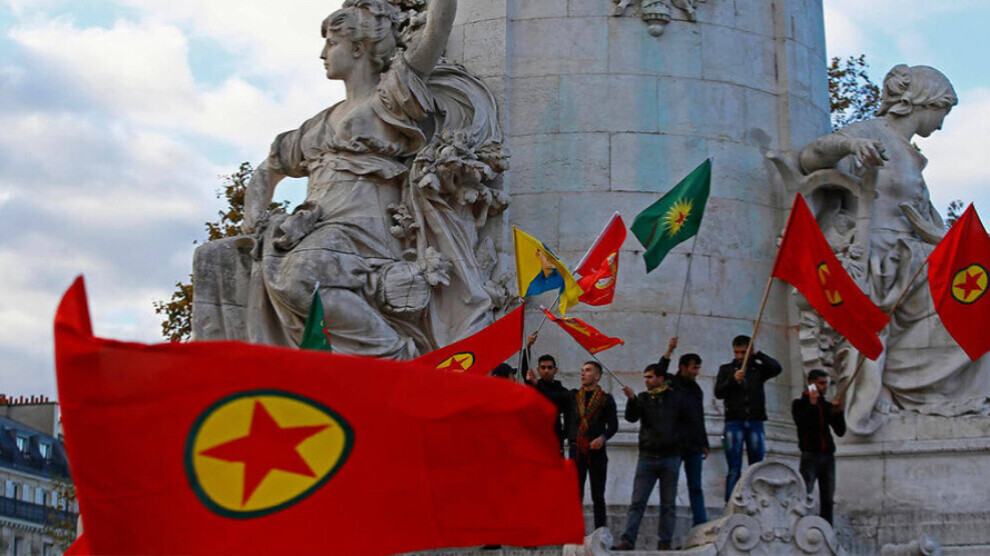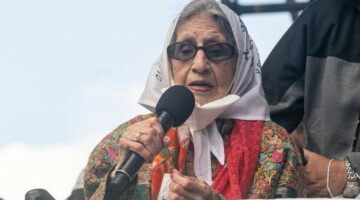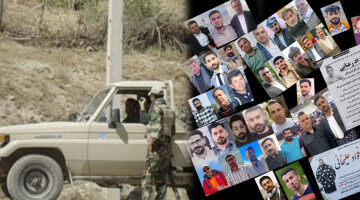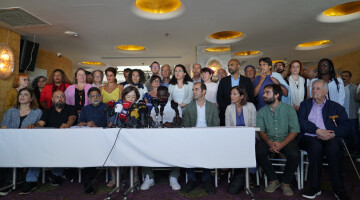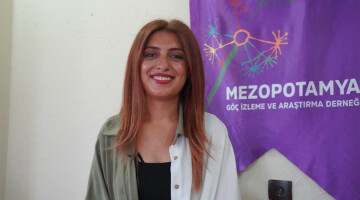The French Collectif Solidarité Kurdistan 13 (CSK.13) has launched a campaign aimed at decriminalizing the PKK. "We appeal to the international community to assume its responsibility: The resistance of the Kurdish people concerns us all. We owe it the legalization of the PKK," reads the introduction to the appeal by the collective, which brings together under its umbrella associations, political and trade union organizations that support the struggle of the Kurdish people and other communities in Kurdistan for freedom, justice and democracy. With wide-ranging actions for an indefinite period of time, the legalization of the party founded by Abdullah Öcalan and a group of friends in 1978 in Amed (Diyarbakir) is set to be achieved.
Since 2002, at the request of the Turkish government, the Kurdistan Workers' Party (PKK) has been included in the terror list regularly updated by the Council of the European Union. The main justification cited was acts of violence by the PKK in Turkey and abroad - "without any evidence of targeted acts against the interests of Europe or any other country outside Kurdistan," the collective stresses. Listing decisions are made by a panel of the Council of Ministers and by consensus, with the suspicions and circumstantial evidence put forward for inclusion mostly based on dubious intelligence information from individual member states. There is no independent assessment of cases based on established evidence.
"The PKK was created to defend itself against the cruelty of the Turkish state. The Turkish state has always had only one goal: to deny the Kurdish people the right to self-determination defined in international law," CSK.13's appeal states, adding that to classify the PKK as a terrorist movement is to ignore "a historical, human and geopolitical reality," but also to deny the liberation struggle of millions of people who are victims of "state terror."
"The PKK cuts across all layers of Kurdish society and represents a political project based on the humanist values that are ours. In contrast, Turkey has been violating the Geneva Convention since the 1980s as a member of the Council of Europe and NATO under the "fallacious argument" of the so-called fight against terror.”
What consequences the PKK's leadership on the EU terror list has for Kurdish society is clearly demonstrated by the collective;
- Thousands of political prisoners, torture, unfair trials, destroyed cities, rapes, massacres, extra-legal executions, disappearances, devastated properties, expropriation, unjustified wars, bombings, invasions, jihadist barbarities and permanent displacement of the population in the Kurdish regions.
- Imprisonment of Chairman Abdullah Öcalan, who has been held incommunicado on the Turkish prison island of Imrali for 22 years.
- a policy of criminalization and repression that is being extended in France and in Europe against Kurdish refugees and associations.
- Execution of three Kurdish peace activists Sakine Cansız (Sara), Fidan Doğan (Rojbîn) and Leyla Şaylemez (Ronahî) in the heart of Paris on January 9, 2013.
- Granting the Turkish state and its leaders absolute impunity for their crimes, providing them with an arsenal of intangible weapons of mass destruction against a millennial people."
The statement further includes the following:
“Since 2014, Erdoğan's regime has constantly made Europe and the rest of the world understand that Turkey is above international laws and agreements. To justify its "genocidal and expansionist policies" and the "export of jihadists," the regime used the war against the PKK. Until yesterday, the international community, including France, supported the Kurdish forces in their uncompromising fight against the Islamic State. At immense sacrifice, the PYD (Democratic Unity Party) and PKK fighters have served as human bulwarks to save the world from the hordes of Daesh.
Traditionally, Turkey considers any individual or structure that challenges both the "authority and unity of the state" to be "terrorist." This is an "inexorable path" to legitimize the violation of all fundamental rights. This political culture, rooted in authoritarianism, represents an opposition to dialogue, a ban on pluralism, a rejection of peace and a concession to war. As a signatory to the Geneva Convention, the PKK has never shied away from a negotiating table within the framework of a peaceful and political solution to the conflict."
The listing of the PKK on the EU terror list also plays into the hands of the Turkish government with regard to the unlawful imprisonment of Kurdish opposition members. Although the European Court of Human Rights (ECtHR) regularly sanctions Turkey, Ankara justifies the arrests of members of the Kurdish opposition. However, Ankara usually justifies the arrests of members of parliament, trade unionists, journalists, lawyers and human rights activists on the basis of their alleged affiliation with the PKK, which is listed as a terrorist organization in Europe. Thousands are victimized and held hostage by the cynicism and hypocrisy of the system. It is the same mechanism that enables the persecution of the Kurdish community living in Europe and in France in particular. In this double game of the international community, the Kurdish people are the allies sacrificed at will on the altar of Turkish diplomacy, according to political agreements, economic and geostrategic interests.
Because of their stubbornness in not legalizing the PKK and in not sanctioning Turkey, Western powers bear a heavy responsibility in covering up horrific atrocities. The fact that the PKK is still on the list of terrorist organizations is tantamount to tacit complicity in what must be called ethnic cleansing. This is shown by the May 2018 verdict of the Permanent Peoples' Tribunal (PPT) on crimes committed by Turkey and its representatives against the Kurdish population and its organizations. The President of the Turkish state, Recep Tayyip Erdoğan, is directly responsible for the war crimes and state crimes committed, particularly in southeastern Anatolia.
Given the obligation of every state to respect and ensure compliance with the Geneva Conventions, every state has a duty to compel Turkey to comply with international law. To the leaders of France and Europe, we address several questions for answers:
- If the PKK is a terrorist organization, how do you explain that the international coalition, which includes France, has fought alongside the Kurdish forces of the PYD and the PKK in the war against Daesh?
- On what definition does the European Union base its classification of the PKK as a terrorist organization? There is no internationally recognized and accepted definition for the term "terrorism." Even the UN is deadlocked on this issue.
- How do you justify the lack of recognition of self-defense and the fact that no distinction is made between acts of terrorism and the legitimate struggles of a liberation movement of over 30 million people? Is there a legal spin in this case?
- Why do you not respect the judgment of the Court of Justice of the European Union (CJEU)? The arguments put forward to keep the PKK on the list of terrorist organizations are unjustified."
The PKK was wrongly included on the EU terror list between 2014 and 2017. The ECJ had ruled that in November 2018. Last April, however, the ruling was partially overturned and the case was referred back to the Court. The reason given was that the reasons for the ruling were inadequate.
The appeal concludes: "France and Europe must end their policy of complacency, put an end to decades of injustice and suffering, and take into account the importance of the Kurdish dynamic. The PKK problem cuts across Syria, Turkey, Iraq and Iran; in the face of obscurantism and despotism, the PKK is the essential interlocutor for a return to peace and stability in the Middle East. Without further delay, the international community must assume its responsibility to firmly sanction the authoritarian Turkish regime and remove the PKK from the list of terrorist organizations.”
Kurdistan Solidarity Collective 13
The Kurdistan Solidarity Collective 13 is composed of: Centre Démocratique Kurde Marseille (CDKM) - Ligue des Droits de l'Homme (LDH) Marseille - Marche Mondiale des Femmes (MMF) 13 Paca - Mouvement contre le racisme et pour l'amitié entre les peuples (MRAP) 13 - Mouvement de la Paix 13 - Nouveau Parti Anticapitaliste (NPA) 13 - Parti Communiste Français (PCF) 13 - Parti de Gauche 13 - Solidarité & Liberté Provence - Union Départementale CGT

